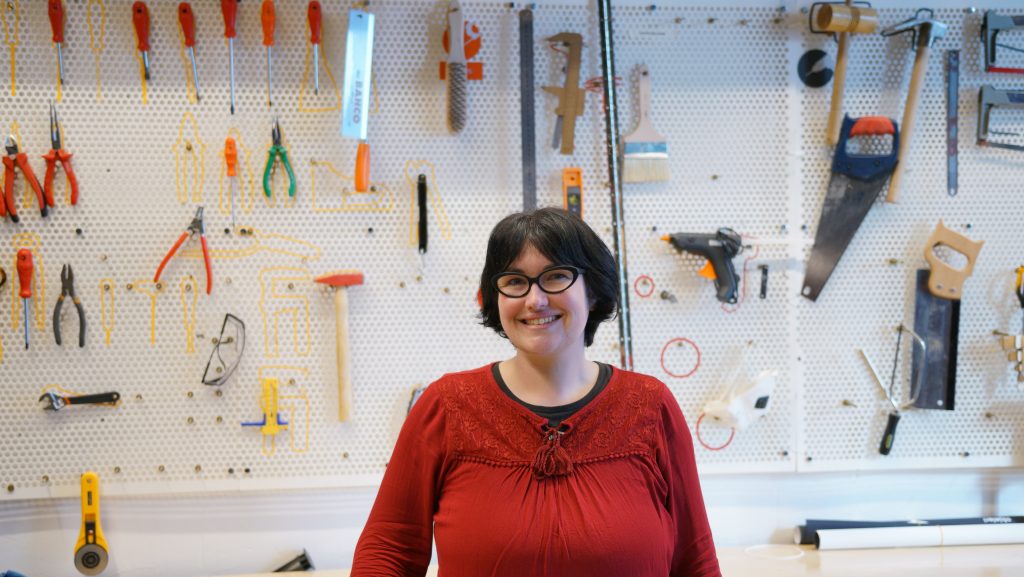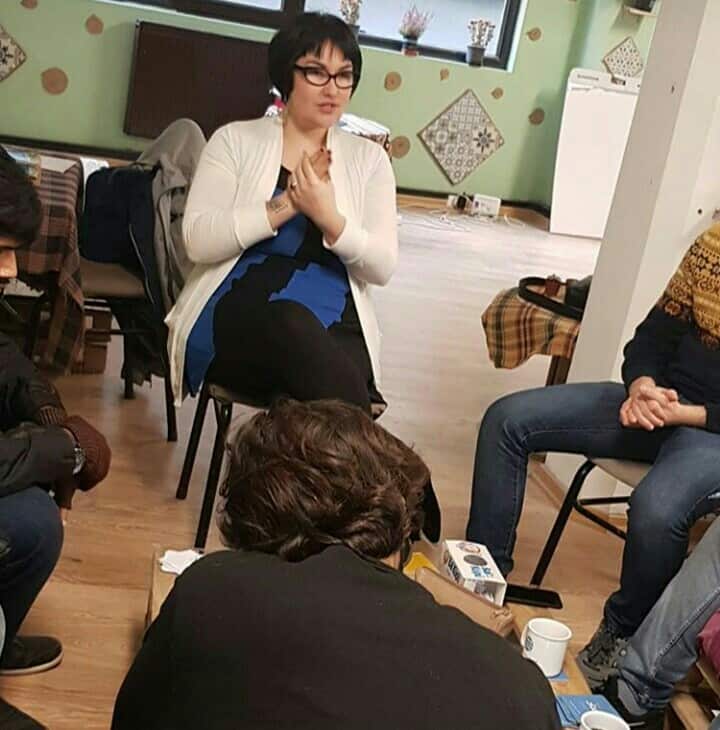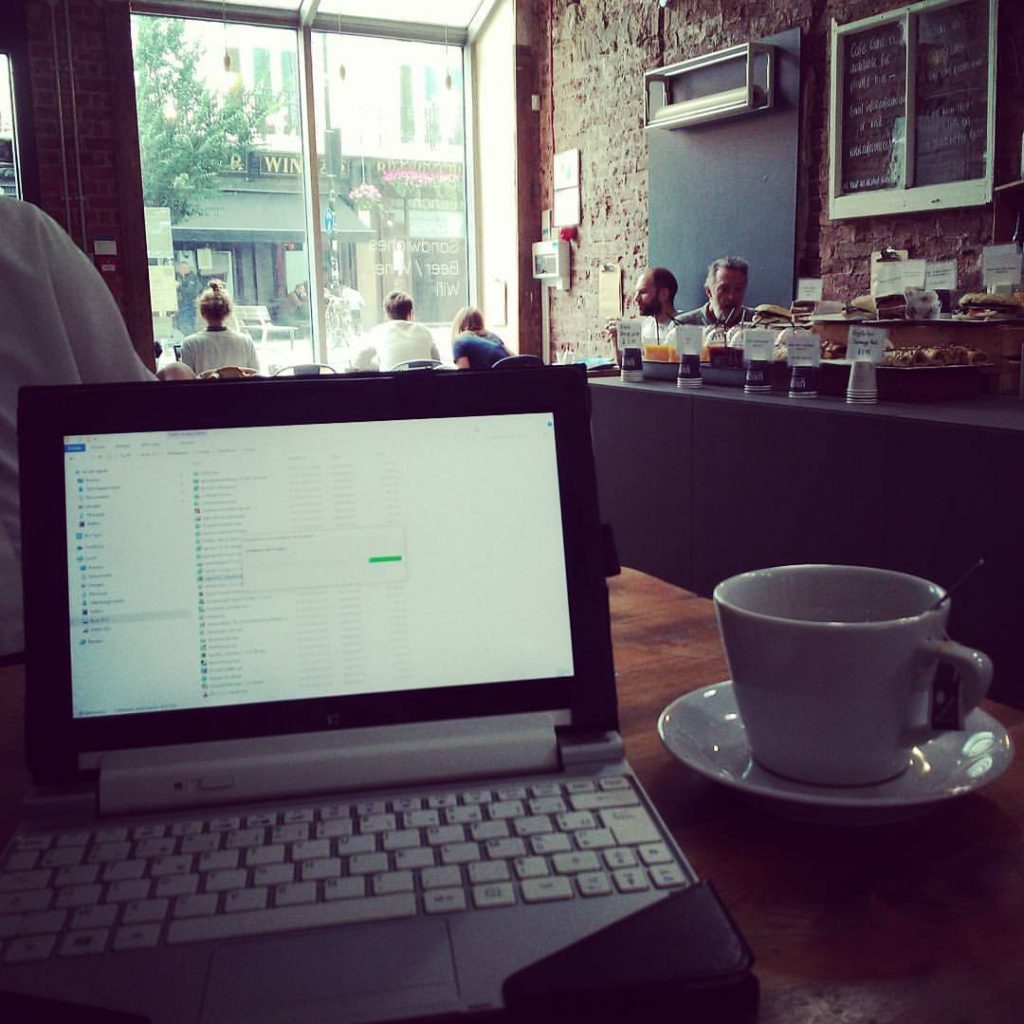The life of digital nomad is as exciting as it is daunting, a delicate balancing act of enterprise and responsibility in lands unknown. Like many of her ilk, Claire Guillon transitioned into the role of world-roaming freelancer after realizing that a conventional profession was not an ideal fit. Reflecting on her skill set of digital know-how, and returning to school to receive a complimentary E-commerce degree, Claire set off on a journey which would eventually find her living in Istanbul as a full-time digital strategy consultant. Along the way, Claire would expand on her love of languages, diversify her expertise, pick up new clients, and grow her network. With her signature two bags of freelancing essentials, Claire is the embodiment of a professional on the go. Regularly traversing the city and setting up work stations, her varied projects and international clientele certainly keep her occupied, while her disciplined work ethic and carefully organized agenda make sure it all stays manageable.
We took some time to speak with Claire on what drew her to being a digital nomad, the challenges that come with the journey, maintaining ethics as a freelancer, some of her present day projects, as well as gained some useful insight into the freelancer role.

Could you tell us a little bit about yourself?
I started writing when I was very young, around 8 years old. I started with poetry and was very interested in English. We used to receive these stickers every week and there was a collection for discovering English by playing. They gave them to young children to learn English with tapes and things like that. So when I was a teen, I was translating songs and naturally decided to become an English teacher. I received my Bachelor of Arts in English at university in France. Then I decided to move somewhere they speak English and experience the way of life, so I went to Wales from 2004 to 2005. I was in a very small village, Carmarthen. I was a foreign language assistant there for one year. They actually spoke Welsh in the school. In the beginning it was kind of tough, but when I returned to France a year later, I was speaking with a Welsh accent. That’s when I started to do the Concours which is the state exam to become a teacher in France. I failed twice and after the second time, I decided to go into primary school teaching. There was a new law stating that English should be taught in primary school too, so I thought why not and became a primary school teacher and head mistress for three years. Then I resigned as I couldn’t stand the French education system. The hierarchy was a main issue and it wasn’t really in sync with my values. I had wanted to be a teacher to help kids think for themselves, but the system there really wants to prepare them to be good workers in the market system.
What was the next step after that?
So after that, I didn’t know what I wanted to do with my life and when I started to think about it, I started thinking about computers. I had been playing on computers since I was two or three years old. When I was eighteen years old, I created my first website. So I decided to go for it. In France, like in lots of countries, you need a degree. So I went back to get my degree in E-Commerce. I had the editorial side covered as I had been working with blogs and websites for a long time. So after my degree, I started working in companies as a traffic manager and e-commerce manager. Then I started to realize that here too I didn’t like working for companies, because everything was profit-based and they didn’t actually care about people. I didn’t want to manipulate people on the internet for profit. So I went on my own and really wanted to focus on the ethical aspect of what I am doing. That’s when I started to work as a web strategist. I had all these skills that I’d gotten over the years, because I had view from the business to the management to when you go online with the content. So that’s how I became a web strategist. I started in 2011, but as a real job that was covering my bills and stuff, it wasn’t until 2016 when I was in Italy. I was doing Erasmus, because in between I had gone back to study. I was doing Renaissance studies in my hometown and during the second year of my Master’s, I had the opportunity to go to Florence. I was actually living in Genoa and studying in Florence and I had to learn how to earn money while not physically being somewhere. That’s when I started as a digital nomad.
What brought you to Istanbul and how do you see your role as a digital nomad being applied here?
The first time I came to Istanbul was totally by chance. It was summer, it was hot, and I was working a lot. I needed a break and went online to find the cheapest flight from Rome. Istanbul was the cheapest, so I came for five days as a tourist. I had the opportunity to come back in November of the same year because I was working with a friend on SEO. We came here for a digital conference on the issue. I stayed a bit more and I decided there were possibilities to work here in SEO and other fields. I have lots of skills to offer and there are new markets. So in the beginning of 2017, I began my plan to come here. When I first arrived, I wanted to be sure I had a work permit to ensure I had health coverag. In June of 2017 I came to Istanbul, started teaching, and resigned from that position a month and a half later because of the management system there. I actually tried two different schools, but it wasn’t for me, and I decided to go back to my real work.

Could you actually elaborate on what it means to be a ‘digital nomad’ and what are your initial impressions of that culture in Turkey?
I don’t really look at digital nomadism as three months here, three months there. I like to really get into the culture of the country I’m going to. You need at least six months for this, as the first six months are spent wondering things like what’s happening, what the culture is like, and what the language is like. You need at least six months for your body and mind to get accustomed to a new country. From there, I start to actually enjoy it and see what I can do while meeting people. I can understand it better. I usually don’t go with a plan. I go to a country if I feel like going there and I don’t know how long I will stay. For here, it has been over six months and I still don’t know how long I will stay. When I feel like Istanbul has given me everything it can, then I will go somewhere else. I will naturally feel like I need to go somewhere else.
I haven’t met so many digital nomads here. The ones I have met are based in two countries and were constantly traveling between the two. This is something I had thought about, and considered making Istanbul my base because it’s easy to travel into Europe, Asia, and the Middle East. Then according to the needs of clients, I can travel. In May and June of this year, I will spend one month in Europe. The beauty of it is that it’s a kind of working holiday. I will spend time with my family and friends in France and Italy, but I’ll also be working. The great part of this lifestyle is that you’re totally location independent. You can go somewhere and work, and enjoy your time. It’s of course not as easy as it seems, as when you’re own boss, you can easily get into a habit of not working that much or even working too much. You need to know your own habits and be quite organized. I’m a mix of being organized, while still letting in some space for the unknown. That comes with experience.
It’s very clear that one aspect of your work you’re clearly passionate about is languages. How do you incorporate that into your digital/internet-based work?
My mother tongue is French. I was interested in English very early on as I mentioned. When I was in school I had learned German for three years, but then I dropped it. I also studied Latin for seven years and then with Renaissance studies I again went back to Latin. It’s not a language you can use in everyday life, but it’s very useful when you write. I learned Italian when I was studying in Italy. When you’re learning languages in general, learning two is very easy. When you add a third one though, your brain really needs to rewire. So when learning Italian, even though it’s similar to French, my brain kept showing me English words. It was a bit of a struggle, but after a year I was fluent in Italian. I was using it in a co-working space, with Italian flatmates, and so on. I try to surround myself with my target language.
When moving to a country, it’s normal to learn the language. With Turkish, I decided to start learning it before moving to Turkey. But when I arrived here as an English teacher, in the school I was working at, everything was totally in Turkish and it quite a shock. Nobody would help with the translations and I eventually rejected the language as a result of the way I was treated. Initially, it even made me think about leaving Turkey.
Then, after some time, I met more locals who were more open and decided to stay and try again. Also, all of my Arabic speaking friends helped me decide to stay in Turkey and now I’m learning Arabic now also. So actually, it’s really because of Arabic that I decided to stay in Turkey.
How does ATÖLYE fit in?
I heard about ATÖLYE in the beginning of December because of a hackathon on gender equality. It was at Impact Hub, but a mentor from imece had come to help and it was my first time hearing of ATÖLYE. It was at the moment I was thinking of going back to being a digital strategist and I was looking for a different kind of space to work in. Because of all my experiences in the past with the internet, languages, and philosophy, I wanted to find a place that was multi-skilled. I like the transdisciplinary aspect of ATÖLYE, so I applied.
What are some of the current projects you’re taking on? Anything you’re particularly enthusiastic about or interested in?
I started working with Liliom in January after the hackathon. We were already friends and during the hackathon we had the opportunity to experience a mix of stress and creativity and handled it well, so we decided to start working together. I joined as a project manager – a digital consultant. I’m very proud of one project we’re working on, Beeild, which is like Wix for building websites but with right to left support. It seems like a small issue, but for Arabic speaking countries it is a real problem.
We are also working on another project, which is to help Syrian refugees to develop their IT skills and find employment here in Turkey. It’s quite interesting. I am really happy to have a project where I can actually help people and it gives them something. It’s not just a project focused on profits. I really enjoy it and always try to be sure I’m doing something that does good.
Liliom is a team of like fifteen people now. We also work remotely. The team is based in Fatih, it’s like a home office of people working and living there. We also have people in the States and people in Syria. Most of us are really young. I’m probably the oldest. [Laughter.] Everyone is enthusiastic and it’s one of the things that made me stay in Istanbul. I can really see the future of it.

What are some of the larger challenges you face in a field like this?
When I’m in a country, I’m still a digital nomad but more location independent. So if I gave you my weekly schedule, Monday I’m in Fatih with Liliom, Tuesday I’m in ATÖLYE, Wednesday I’m in Kadıköy, Thursday is either ATÖLYE or meeting with clients around the city, and Friday I’m back at Liliom. It’s a challenge but I also need it. If I had to go to the same place everyday, I would really feel as it was something I have to do. As a digital nomad, I’m always trying to remove the “have to” from my life.
Another aspect that isn’t easy is the networking side and making yourself known. When you’re a freelancer, you have to be your own product. You need to market yourself while also working for clients. Managing to find this balance isn’t easy.
As we’re a publication for foreigners living in Istanbul, any advice you’d like to share with our audience?
Well actually, I’m in love with Genoa in Italy. It’s brutally honest. It’s a city that’s wonderful for people who like something authentic and off the main road. I really like to go back there and it’s like a second home for me. They used to have a direct flight, but now you just need to stop in Milan to get there. It’s really a gem and most people miss it. So definitely visit there.
To keep up with Claire and her work, be sure to visit http://claire-guillon.com/ and http://www.web-strategy.net/.
ATÖLYE Spotlight is our series on the inspiring community members of Istanbul’s most creative space.
All images courtesy of the interviewee.









